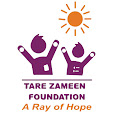India has been a victim of illiteracy for decades.
It has affected the overall society of the country. The government is trying
its best to implement various schemes, acts, and resources for eradication of
illiteracy. But along with the government, there are various Non-Profit
organizations and NGOs that are working towards eradicating this issue. So how
does an NGO work towards this issue?
Education
Resources
Even though The
Right to Education Act was passed by the parliament in 2009 which ensured free
and compulsory education to children between 6 to 14 years of age, there is a
whole lot of a section that does not fall into this section and is devoid of
education. Children below and above the specified groups can have an effect on
them too. Children below the age of 6 years are vulnerable to child labour. The
NGOs try to make sure this does not happen. Also, there are children above the
age of 14 who want to pursue further education. The NGOs try their best to
provide resources and opportunities for such children to get them educated and
more suitable for employment opportunities.
Flexible
Timings and Night Schools
Even though there
are schools available for free, there are still many children who are not able
to attend it. The most common reason for it is that their families need
financial support and the children work to earn income. This leaves them with
no time to attend schools. There are NGOs that try to provide flexible timings
to such children. There are nigh schools and colleges set up to support these
children. This schedule helps the children to earn their livelihood during the
day and get educated at night.
Providing
Vocational training
Education aims to
provide the children with the knowledge and skills to be able to find
employment. Vocational training is one of the best ways to empower the
uneducated. NGOs tend to provide underprivileged children with training and
vocational classes in various employable skills like stitching, plumbing,
nursing, etc. This helps the children to equipped with skills that help them
earn a proper livelihood and a steady income.
Creating
and spreading awareness in the underprivileged societies
There are many
underprivileged and rural, tribal families that effuse to send their children
to school. It is because they feel that it may be a waste of time sending to
school wherein the children could earn by working. They tend to work with the
mindset of surviving without education. They also feel their children may get
spoiled by urban values. This why it is necessary to spread proper awareness
regarding education especially in rural and tribal areas. Many NGOs try to
conduct workshops, gathering, speeches that help create awareness about
education. They try to show them the importance of education rather than just
informing and how education can help the financial state of the families.
Encouraging
educated Teachers to volunteer
It is important to
have a qualified and dedicated teacher to ensure proper training and education
of the children. There are loads of teachers available for private schools and
government schools in urban areas to teach the students there. But there is a
huge lack of proper teachers to teach the underprivileged students in the rural
and tribal areas. The main reason behind this is minimal pays. NGOs are trying
their best to encourage educated individuals and teachers to act as volunteers
part-time to help the cause of rooting out the illiteracy and teaching the
underprivileged children. There are many NGOs that have teachers who volunteer
part-time or during weekends to educate the underprivileged children. This
helps create a better batch of educated teachers for the underprivileged.
All these factors play a prominent role in helping
eradicate illiteracy in India. Al such NGOs are working tirelessly to educate
the underprivileged. All one can do is act a volunteer and support such NGOs in
their noble cause.







1 Comments
Great Article.
ReplyDeleteFree Treatment in Punjab